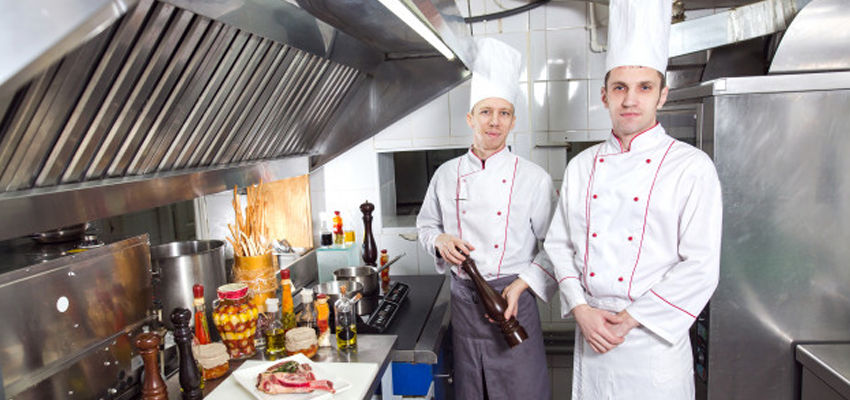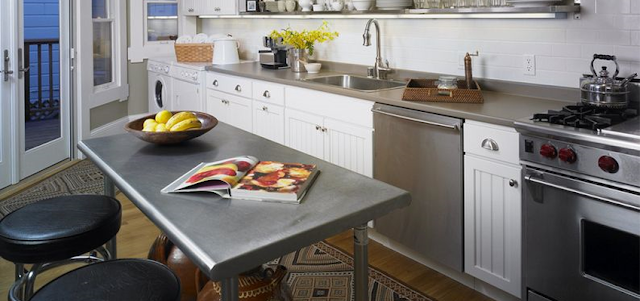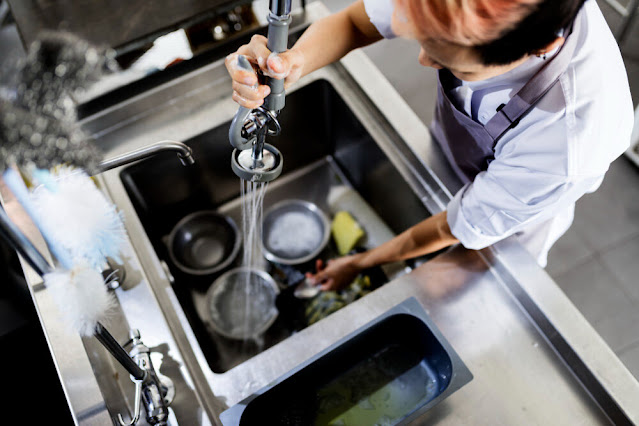How Commercial Cooking Equipment Is Different from the Average Appliance
Commercial kitchens use multiple types of equipment depending on their size, menu and other factors. If you have visited any restaurant kitchen, you must have noticed that these devices considerably differ from the average appliances. You might not have paid enough attention to note all the minute things but what you couldn’t have missed is the difference in construction quality. Appliances used in large-scale cooking should never be of average class. They must be designed and made to serve the heavy-duty foodservice needs.
Let’s take a
more in-depth look into how commercial cooking equipment differ from the
average appliances,
Highly powerful
Cooking
equipment used in the foodservice business essentially packs high power.
Restaurants prepare foods in high volume within strict time constraints. To
help in the preparation or cooking the device needs to be extremely powerful
and able to deliver consistently. Consider the range, one of the primary
workhorses in every kitchen. The restaurant ranges provide high heat
continuously on all the burners, ensuring that foods are cooked within minimum
time. An average quality range will never be able to deliver similar
efficiency, slowing down the back of the house processes.
High-quality
refrigerators used in foodservice business essentially come equipped with a
powerful, branded compressor to suffice all storage and freezing needs. An
average quality appliance will not have a branded compressor, which will
naturally compromise on the cooling or freezing power of the refrigerator.
Notably, a refrigerator without a branded compressor is not dependable at all
and can breakdown anytime.
When it comes to the exhaust system of the cooking area, the power of the device becomes a crucial deciding factor. The power of the industrial exhaust system is often determined by the authority depending on the style of the kitchen and volume of food to be prepared. An exhaust system of average quality can never meet the specifications mandated for commercial kitchens.
Energy efficient
Buying kitchen equipment
is often a one-time investment, but the daily operational cost is a recurring
expense of your business. In restaurants and food shops, different equipment is
often in use for the whole day and might even stay operational even during the
night hours. Unless the appliance is energy efficient, it can quickly add up a
considerable sum to your power bills. More to the point, at the present
scenario, it is only a wise choice to use environment-friendly devices that
consume less power for maximum efficiency.
The equipment
for restaurant kitchens and catering is essentially designed, keeping these
points in mind. You will not find any cooking or catering appliance from a good
brand that is not energy efficient. However, the average quality devices often
lack on this aspect. They might look similar and are priced lower, but their
operational expenses are usually much higher compared to the commercially
designed ones.
Stronger construction
Equipment for
restaurant use has a more robust construction to survive regular wear and tear.
These devices are designed for heavy-duty, rigorous, and often rough use. The
stronger construction ensures that the device can be used extensively without
frequent breakdowns. 304 type stainless-steel is typically used in making commercial
kitchen appliances. This alloy is resilient and resistant to corrosion. It
ensures that the devices are strong enough to survive the regular high-demand
use. As these devices are resistant to corrosion, they are also easy to clean
and maintain.
Average commercial
kitchen equipment, on the other hand, is often made of plastic or
low-quality steel. None of these materials is strong enough to survive the
day-to-day use of a busy restaurant. Moreover, low quality steel is prone to
rapid corrosion and can deteriorate quickly over time.
Suppose you are
spending on a good quality stainless steel workbench designed for use in
restaurant kitchens. Even if you do not take a lot of care of this unit, it
will serve you years. All you need to do is clean it daily. That said, an
average workbench will not give you a long service and will require much more
maintenance and cleaning efforts.
Maximum longevity
Commercial
cooking appliances are expensive, but they are designed for long-lasting
service, and many of them might serve you as long as a lifetime if maintained
properly. These devices are made from a high-quality material like 304
stainless steel which makes them resilient and resistant to corrosion. More on
the note, this alloy is easy to clean and maintain. Just a wipe with a dry and
soft cloth can be enough to keep your workbench clean.
As these devices
are fitted with high-quality parts and motor, they rarely breakdown. Even after
heavy-duty use and often misuse the commercially designed cooking appliances
will give you long service, and you might need to buy one equipment only once
in your lifetime. The average quality equipment, on the other hand, is
naturally prone to breakdown, particularly in the heavy-duty environment of a
restaurant kitchen.
Additional features
Many industrial
cooking appliances are provided with special features, and these features make
the operation of the device in the kitchen safe and straightforward. The
average equipment typically misses out on these features because they are not
designed keeping the exact use in mind. Moreover, in order to keep it cheap,
they naturally compromise with the features.
For example, ranges and most of the other gas equipment like griddles, grills designed for use in a restaurant, essentially come with the flame failure system. It is a feature implemented in the gas equipment to prevent leakage of gas in case the flame is extinguished without notice. Either the flame is automatically re-ignited, or the gas supply is automatically turned off in case the flame goes off. Now, this feature is essential to avoid any risk of fire accidents, but average appliances will typically miss these advanced systems.
Also, often a
difference can be noticed in the overall look and design of the commercial-grade
equipment and the average ones. It is always advised to spend only on
commercial grade appliances for use in a commercial place. An average quality
device or even a household appliance will never be able to survive the
commercial heavy-duty usage and demand. If you are running short on budget,
talk to your commercial kitchen
equipment supplier for best deals instead of compromising on the
appliance quality.







Comments
Post a Comment